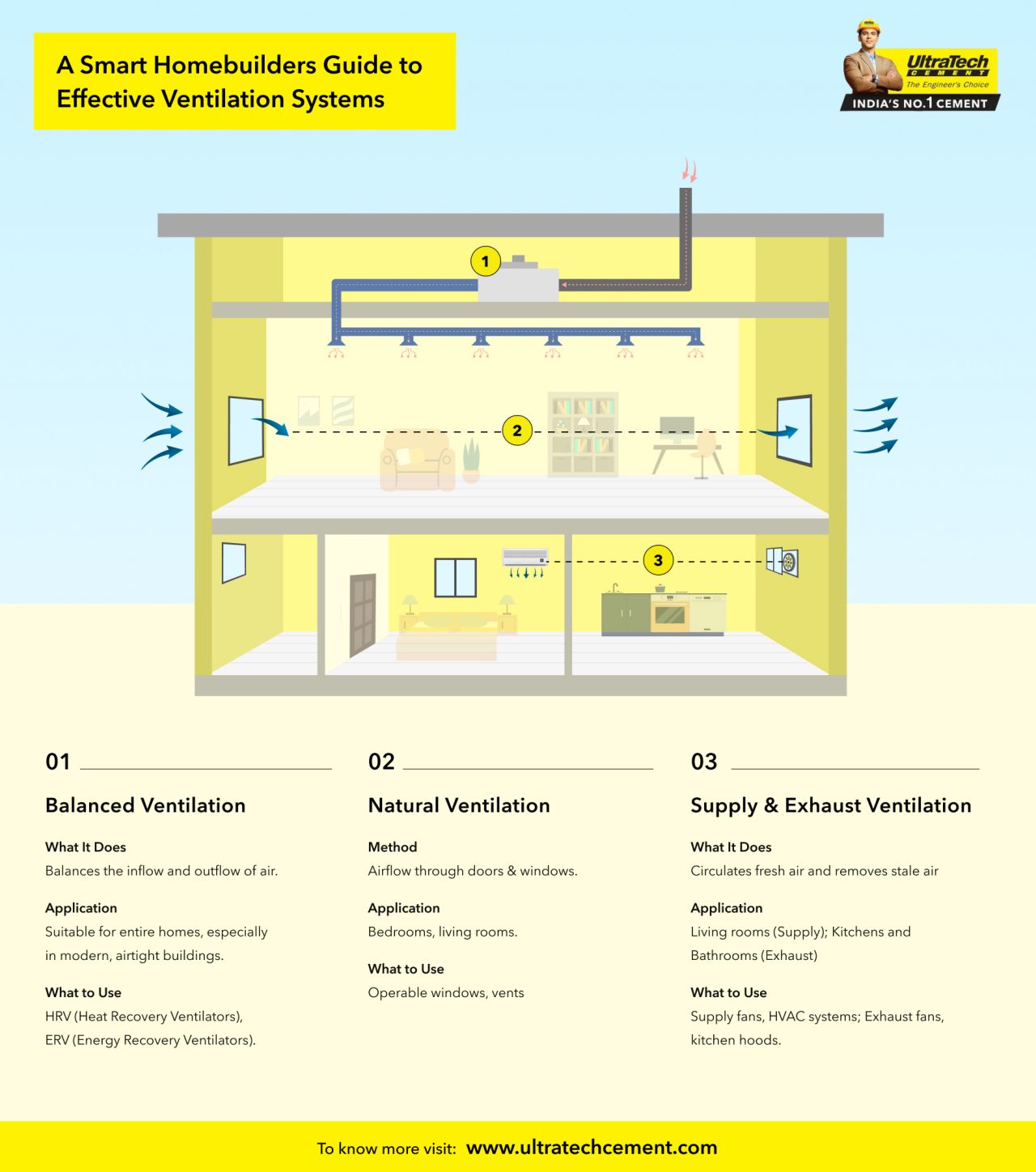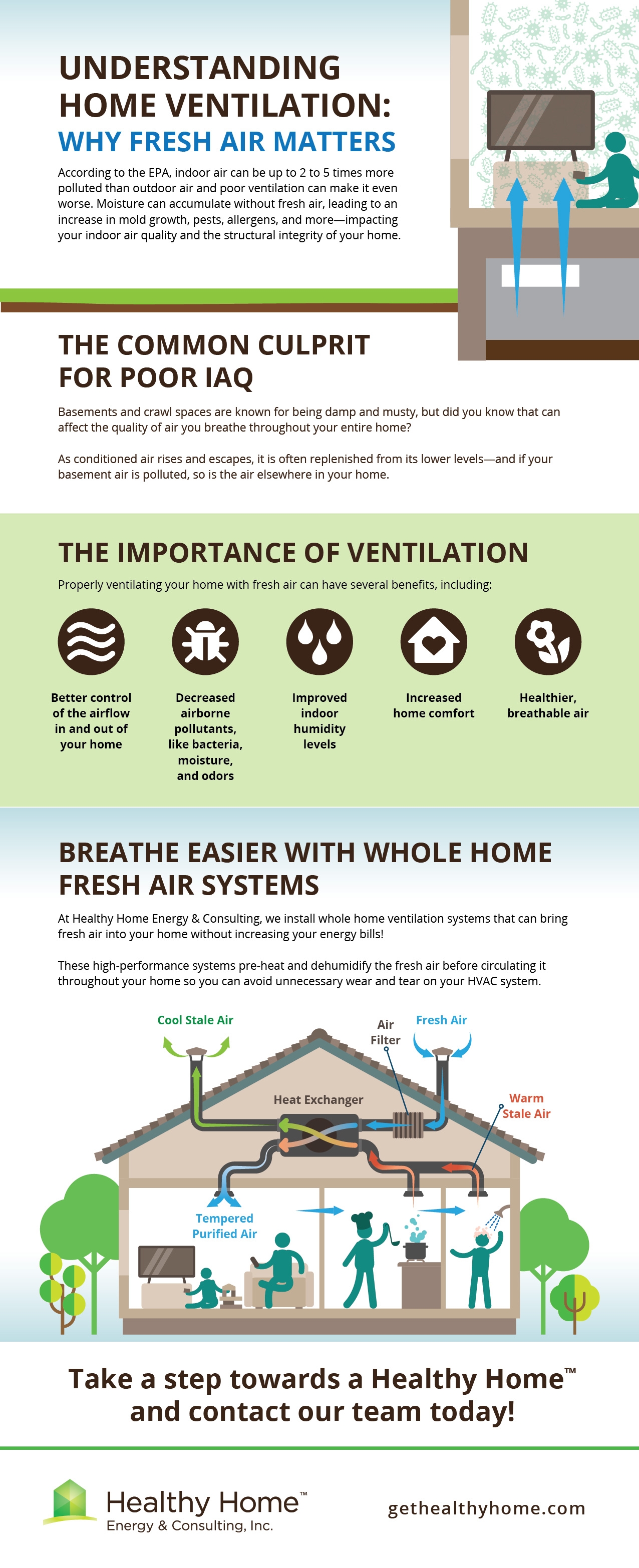How Home Ventilation Melbourne Enhances Comfort and Well-Being
Wiki Article
Recognizing the Significance of Home Air Flow for a Healthier Living Setting
Home air flow plays a necessary role in keeping a healthy living environment. It helps with the exchange of interior and outside air, which is necessary for enhancing air high quality. Without appropriate ventilation, homes can become reproducing grounds for contaminants and irritants. The consequences of insufficient air blood circulation can be significant. This brings up the questions of just how home owners can efficiently execute ventilation methods to safeguard their wellness and well-being. Understanding these methods is critical.
The Basics of Home Air Flow
Home ventilation works as an essential part of interior air top quality and convenience. It entails the process of trading stagnant interior air with fresh outside air, consequently lowering moisture and managing temperature level. Correct air flow systems can consist of natural methods, such as open windows and vents, along with mechanical systems, such as exhaust fans and air exchangers. Efficient home air flow aids stop concerns like indoor mold development and the buildup of unsafe particles. It likewise improves general energy efficiency, as well-ventilated spaces can keep comfy temperatures with much less dependence on home heating and cooling down systems. Understanding the fundamentals of home air flow is important for homeowners looking for to develop a healthier living environment on their own and their family members.
Typical Sources of Indoor Air Air Pollution

Numerous might not understand it, interior air pollution can stem from different sources within a household. Typical factors include volatile organic substances (VOCs) discharged from paints, solvents, and cleaning items. House devices, such as gas cooktops and fireplaces, can launch unsafe gases like carbon monoxide gas and nitrogen dioxide. Furthermore, mold and mildew grow in moist areas, releasing spores that affect air top quality. Pet dander, allergen, and plant pollen can gather inside your home, additional intensifying air pollution degrees. Smoking cigarettes inside creates poisonous chemicals that stick around airborne. Finally, developing products, including asbestos and formaldehyde, can off-gas dangerous compounds. Recognizing these sources is crucial for maintaining a much healthier indoor atmosphere and promoting efficient ventilation approaches.
Health Results of Poor Ventilation
Interior air pollution can have significant health ramifications, specifically when air flow is poor. Poor air flow can result in the accumulation of harmful pollutants, such as unpredictable organic compounds, mold and mildew, and particle matter. This accumulation may lead to respiratory system issues, including bronchial asthma, allergies, and persistent obstructive pulmonary disease. Individuals may experience signs like frustrations, tiredness, and irritation of the eyes, nose, and throat. Susceptible populations, such as children and the senior, are at greater threat for extreme health impacts. Long-term exposure to improperly ventilated environments can additionally add to more severe conditions, consisting of heart diseases. Making sure appropriate air flow is crucial for keeping a healthy and balanced living atmosphere and minimizing the risk of health and wellness complications linked with interior air pollution.Reliable Air Flow Strategies for Your Home
Appropriate air flow is necessary for keeping a healthy interior atmosphere, and carrying out efficient approaches can substantially improve air high quality. Home owners can begin by making certain that exhaust fans are installed in kitchen areas and shower rooms to eliminate excess wetness and odors. Opening home windows on a regular basis permits fresh air to circulate, particularly during mild climate. In addition, making use of air purifiers with HEPA filters can help catch air-borne pollutants. For homes with home heating and cooling systems, preserving HVAC systems and changing filters consistently is important for peak performance. Integrating natural air flow techniques, such as cross-ventilation, can likewise enhance air flow. Sealing any type of leakages in windows and doors prevents undesirable drafts, which can interfere with regulated air flow, eventually leading to boosted interior air top quality and comfort.Keeping Ideal Air Quality Year-Round
To keep perfect air high quality year-round, property owners should adopt a proactive approach to handling their interior setting. Frequently checking interior air high quality is essential; this consists of checking for contaminants such as dust, mold and mildew, and unpredictable natural compounds (VOCs) Implementing effective air flow systems, such as exhaust followers and air cleansers, can top article greatly decrease airborne impurities. Furthermore, routine maintenance of heating and cooling systems assurances peak efficiency and air flow. Homeowners should also take into consideration humidity levels, as excessive wetness can lead to mold growth. Seasonal modifications may necessitate changes in air flow strategies to accommodate varying outside air quality. By prioritizing these methods, property owners can produce a much healthier home, promoting general health for all owners throughout the year.Frequently Asked Inquiries
Exactly How Can I Inform if My Home Demands Better Air Flow?
To establish if a home needs far better ventilation, one ought to observe signs such as consistent moisture, mold growth, mildewy odors, condensation on windows, or raised allergic reaction signs and symptoms, suggesting insufficient air flow and possibly poor indoor air high quality.What Are the Signs of Poor Indoor Air Top Quality?

Can Houseplants Improve Indoor Air Top Quality Efficiently?
The efficiency of houseplants in boosting indoor air high quality is debated. While some research studies recommend they can absorb toxic substances and generate oxygen, their redirected here total effect may be very little compared to correct air flow and air filtering systems.Just how Often Should I Adjustment My Air Filters?
The frequency of air filter adjustments usually depends upon use and filter type. Typically, it is advised to change filters every 3 months, though families with allergic reactions or pet dogs might need even more frequent adjustments for excellent efficiency.Are There Any Details Ventilation Equipments for Allergic Reaction Sufferers?
Numerous ventilation systems, such as HEPA-filtered units, effectively minimize i loved this irritants airborne. Home Ventilation Melbourne. These systems trap plant pollen, pet, and dust dander, giving allergic reaction patients with a cleaner, much healthier indoor atmosphere while taking care of air top quality effectively
It helps with the exchange of outside and interior air, which is important for enhancing air quality. Home ventilation offers as a crucial component of interior air quality and convenience. It includes the procedure of exchanging stagnant indoor air with fresh outside air, therefore reducing moisture and regulating temperature level. Indoor air pollution can have significant health ramifications, particularly when air flow is inadequate. Appropriate air flow is important for maintaining a healthy interior environment, and executing effective strategies can greatly boost air quality.
Report this wiki page